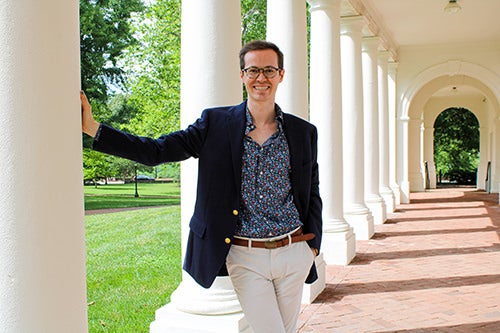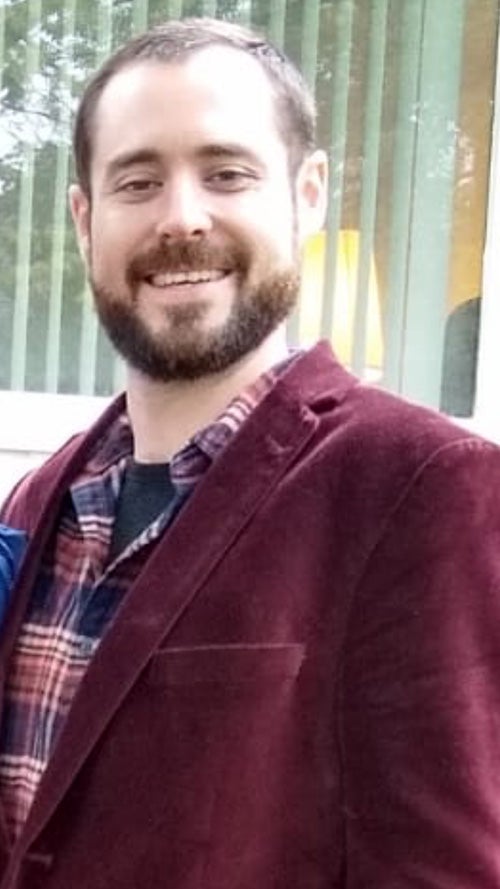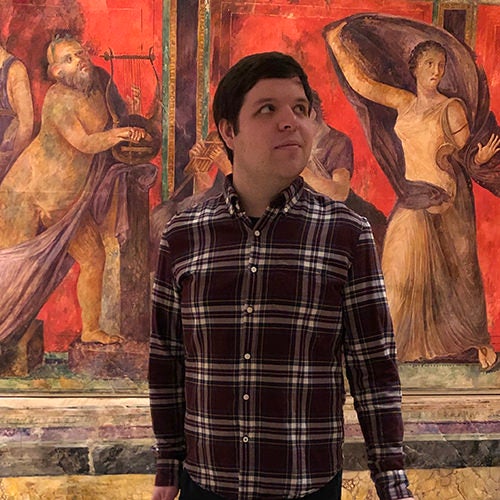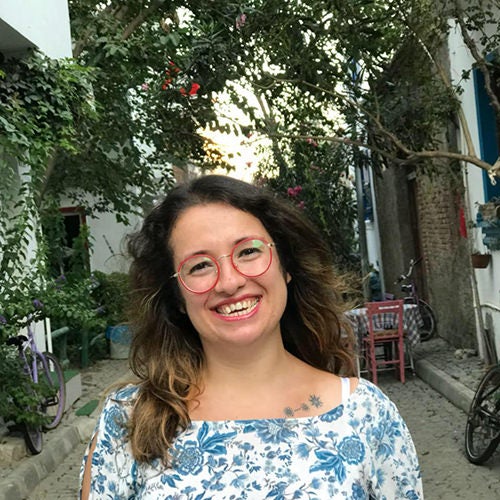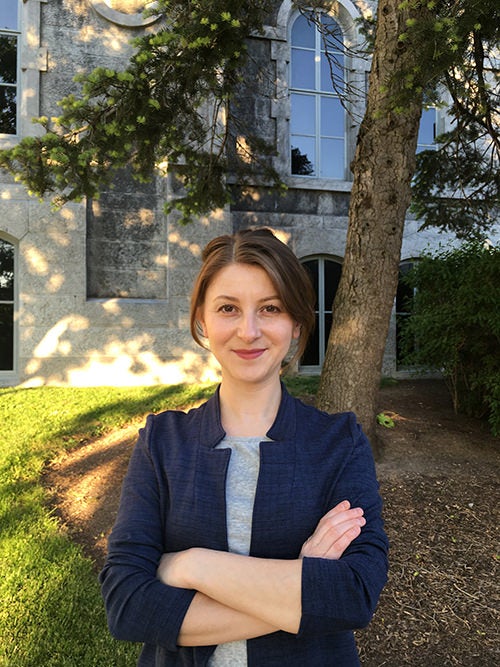Holstein Dissertation Fellows 2020-2021
| William P. Boyce is a Ph.D. candidate in Religious Studies at the University of Virginia in Charlottesville. His research brings together U.S. Religious History, Gender and Sexuality Studies, and Queer Theology. His dissertation examines the complex affective strategies within North American Evangelicalism as it relates to theo-ethical constructions and repudiations of queerness in the postwar era and explores theological resources for dialogue and reformation. He holds degrees from Florida State University (B.A. in Religion, History, and English), University of Glasgow (M.Litt. in Religion, Theology, and Culture) as a Fulbright Scholar, and Gordon-Conwell Theological Seminary (M.A. in Theology). He also considers himself generally subtext literate, is known to frustrate his friends with his dietary restrictions, and is an unapologetic devotee of Dolly Parton.
Mentor: Suzanna Krivulskaya, CSU San Marcos |
|
| Joe Coyle is a Ph.D. candidate in Anthropology at the University of Illinois at Urbana-Champaign. His research focuses on the self-making strategies of LGBTQ Pentecostals and transformations in forms of queer and religious belonging in Brazil. He ethnographically examines queer Pentecostal lifeworlds in relation to the simultaneous growth of Pentecostal political power and LGBTQ rights discourses in Brazil, and the emergence of Pentecostal “igrejas inclusivas” (inclusive, LGBTQ-led churches).
Mentor: David Seitz, Harvey Mudd College |
|
| Benjamin Hollenbach is a Ph.D. Candidate in the Department of Anthropology at the University of Michigan, Ann Arbor. He earned his B.A. in anthropology and classics at Franklin & Marshall College in Lancaster, Pennsylvania. Benjamin’s research focuses on the anthropology of religion, with a particular emphasis on contemporary Christianity in the United States and LGBTQ+ representation within Christian groups. Benjamin’s dissertation is an ethnographic account of three Mainline Protestant congregations in the United States, with each church coming from denominations which have earned a reputation for political and theological progressivism. Each of these congregations has committed in some way to cultivating more welcoming spaces for queer congregants, though members’ actions in enacting inclusive behaviors are varied and expansive. By focusing on how people of faith determine which behaviors promote diversity, equity, and inclusion, Benjamin examines the ways in which progressive Christian congregations shape and influence queer politics in the United States. Conversely, he also examines the ways queer Christians actively construct queer religiosities, and shape the religious institutions to which they belong.
Mentor: Paul Lichterman, University of Southern California |
|
| Tuğçe Kayaal is currently a Ph.D. candidate at the University of Michigan in the Middle East Studies Department. She is also enrolled in the certificate program in Women’s Studies. In 2018, Kayaal was an A. Bartlett Giamatti Graduate Student Fellow at the Institute for the Humanities, University of Michigan. Her research interests incorporate queer youth cultures in the Global South, transnational sexualities and feminisms, histories of love and intimacy, body and medicine in Islamic societies, and discourses of sexual deviancy in the late Ottoman Empire and the Early Republic of Turkey. In 2019, Kayaal published an article, titled “Breastfeeding: Ottoman Empire,” in Encyclopedia of Women and Islamic Cultures. In the Spring 2020 issue of Historical Reflections, she published her new article, titled “‘Twisted Desires,’ Boy Lovers, and Male-Male Cross-Generational Sex in the Late Ottoman Empire (1912-18). Currently, she is working on her dissertation, Wartime Bodies: Politics of Sexuality and War Orphans in the Late Ottoman Empire (1912-23). Her dissertation explores the politics of sexuality pursued by the Ottoman regime to regulate sexual orientation and imperial belonging, focusing on state and societal responses to war orphans and youth during the Balkan Wars (1912-13) and World War I (1914-18).
Mentor: Jamel Velji, Claremont McKenna College |
|
| Duygu Yeni Cenebasi is a Ph.D. candidate in Religion at Syracuse University with graduate certificates in Women’s and Gender Studies, Middle Eastern Affairs, and Language Teaching. She earned her M.A. degree in Cultural Studies from Sabanci University, Istanbul, and her B.A. degrees in English Language and Literature, and in Philosophy from Bogazici University, Istanbul. Duygu’s work examines sacred books, material culture, and discourses of sexuality and gender. Her dissertation focuses on book designs in American and Turkish publishing industries and explores how the materiality of the Bible and the Qur’an impacts the production of meanings in ways that can reproduce or disrupt heteronormativity. Her research is informed by theories of material religion, gender and sexuality, and consumer studies, fashion studies, and digital media. She has taught courses on feminist hermeneutics, the Islamic veil, auto/biography, and world religions.
Mentor: Sherine Hafez, UC Riverside |
